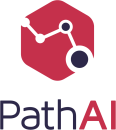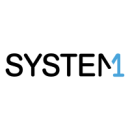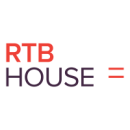AI is on the rise. While there are legitimate concerns about the rapidly advancing technology, there are also numerous artificial intelligence examples that prove it’s shaping the future for the better.
Artificial Intelligence Examples
- Manufacturing robots
- Self-driving cars
- Smart assistants
- Healthcare management
- Automated financial investing
- Virtual travel booking agent
- Social media monitoring
- Marketing chatbots
AI has already made a positive impact across a broad range of industries. It can automate processes to free employees of unnecessary labor, provide personalized learning options for students, enable cybersecurity companies to deploy faster solutions and help fashion companies design better-fitting clothing for their customers. Even ChatGPT is applying deep learning to detect coding errors and produce written answers to questions.
And this is only the beginning.
Let’s take a deeper dive into other artificial intelligence examples further demonstrating AI’s diverse applications.
AI Robotics
Today’s AI-powered robots are capable of solving problems and “thinking” in a limited capacity. As a result, artificial intelligence is entrusted with performing increasingly complex tasks. From working on assembly lines at Tesla to teaching Japanese students English, examples of AI in the field of robotics are plentiful.
Location: Los Angeles, California
Machina Labs is a robotics manufacturing company that creates smart factories, which use robots for building and assembling components within an automated environment. These industrial manufacturing spaces specialize in formed sheet metal goods, building prototypes and products for clients in the aerospace, defense, automotive and consumer goods sectors.
Location: Louisville, Colorado
AMP designs, engineers and manufactures robotic systems for recycling sites. Because the robots, which are powered by AI, can quickly discern variations in materials — like material type, shape, texture, color and logos — they can digitize and efficiently process every object that comes through a recycling facility, targeting specific items on conveyor belts as needed.
Location: Bedford, Massachusetts
iRobot is probably best known for developing Roomba, the smart vacuum that uses AI to scan room size, identify obstacles and remember the most efficient routes for cleaning. The self-deploying Roomba can also determine how much vacuuming there is to do based on a room’s size, and it needs no human assistance to clean floors.
Location: Hong Kong, China
Hanson Robotics is building humanoid robots with artificial intelligence for both commercial and consumer markets. The Hanson-created Sophia is an incredibly advanced social-learning robot. Through AI, Sophia can efficiently communicate with natural language and use facial expressions to convey human-like emotions.
Location: San Francisco, California
Softbank Robotics developed a humanoid robot known as Pepper, which is equipped with an “emotion engine” that makes it “capable of recognizing faces and basic human emotions.” Standing at 4 feet tall, Pepper can operate in more than a dozen languages and has a touch screen attached to support communication. Softbank also developed a bipedal robot called NAO, which can be used in educational and research settings, as well as an autonomous vacuum named Whiz to handle commercial cleaning.
Location: Pasadena, California
Miso Robotics builds robotic kitchen assistants. The company has released Flippy 2, the second generation of its AI-equipped robot that helps with kitchen automation for tasks like frying food. The company also has its CookRight line, with systems for monitoring grilling and coffee brewing. Additionally, Miso Robotics has been developing a drink dispenser that can integrate with an establishment’s point-of-sale system to simplify and automate filling drink orders.
AI and Smart Assistants
If you’ve ever asked Siri to help find your AirPods or told Amazon Alexa to turn off the lights, then you’ve interacted with perhaps one of the most common forms of artificial intelligence permeating everyday life.
AI is the backbone of smart assistants, which can be accessed through most phones on the market these days and are also being integrated into cars and smart home devices. As of 2022, more than 120 million U.S. adults use a smart assistant at least once a month.
Here are some of the companies bringing consumers smart assistants equipped with artificial intelligence.
Location: San Francisco, California
Grammarly provides AI-powered, contextually relevant writing assistance. Its business solution combines this capability with organizational knowledge to help teams increase productivity and organizations save on costs. Grammarly offers premium, free-tier and education tools to provide writing support across over 500,000 apps and websites.
Location: Cupertino, California
Siri, Apple’s digital assistant, has been around since 2011 when it was integrated into the tech giant’s operating system as part of the iPhone 4S launch. Apple describes it as the “most private digital assistant.” Siri puts AI to work to help users with things like setting timers and reminders, making phone calls and completing online searches.
Location: Redmond, Washington
Microsoft joined the smart assistant trend in 2014 with the release of Cortana for Windows Phone 8.1. Cortana now serves as a “personal productivity assistant” integrated into the Microsoft 365 suite of apps. For example, this AI-enabled assistant has the ability to remind Microsoft users about emails that require follow-up or to recognize voice instructions to join a meeting through the Teams app.
Location: Suwon-Si, South Korea
Samsung unveiled its intelligent assistant Bixby as part of the release of its Galaxy S8 and S8+ models in 2018. It works with quick commands to open a phone camera or start a particular playlist, but Bixby can also turn off lights through smart home devices or help locate items like misplaced Bluetooth earbuds. In addition to portable devices like phones and tablets, Bixby can also be accessed through certain Samsung appliances such as smart refrigerators.
Location: Santa Clara, California
Brands can work with SoundHound to develop and customize smart assistants using the company’s voice AI platform. Netflix, Pandora and Mercedes-Benz are among the companies that have worked with SoundHound on voice-enabled solutions. Building off its Speech-to-Meaning and Deep Meaning Understanding technology, SoundHound can integrate speech recognition, conversational AI and other components into cars and smart home devices.
Location: Fully Remote
Skillsoft is an edtech company producing software that companies use to facilitate employee training and upskilling. Its Conversation AI Simulator, known as CAISY, is a tool that lets users practice business and leadership conversations. It serves as a trainer that simulates the other side of the conversation and gives the user feedback to guide the development of their conversational skills in various scenarios, such as handling a difficult customer service interaction or communicating a decision about a product launch.
Location: Chicago, Illinois
Motorola Solutions offers hardware and software products that support safety and security operations. The company builds AI-enabled assistive technologies that inform human decision making in public safety settings. For example, Motorola Solutions’ conversational AI and natural language processing offerings are able to search databases and provide useful information based on voice commands and transcribe 911 calls in real time.
AI in Healthcare
Artificial intelligence is proving to be a game-changer in healthcare, improving virtually every aspect of the industry from robot-assisted surgeries to safeguarding private records against cyber criminals.
Healthcare has long suffered from skyrocketing medical costs and inefficient processes. Artificial intelligence is giving the industry a much-needed makeover.
AI-enabled virtual assistants are reducing unnecessary hospital visits and giving nurses 8 to 16 percent of their time back in the process; pharmaceutical companies are researching lifesaving medicines in a fraction of the time and cost it traditionally takes; and AI is even being used to help bring advanced healthcare to nations that need it.
Here are a few examples of how artificial intelligence is streamlining processes and opening up innovative new avenues for the healthcare industry.
Location: Indianapolis, Indiana
Greenlight Guru provides cloud-based solutions for the medical technology sector whose goal is to help companies bring products to market faster, more efficiently and with less risk. Its search engine uses AI to aggregate and process industry data and detect and assess security risks in network devices. It also offers a risk management solution that automatically calculates risk assessments.
Location: Tokyo, Japan
Global pharmaceutical company Takeda’s research and development efforts focus on gastrointestinal and inflammatory diseases, treatment of various rare diseases, plasma-derived therapies, oncology, neuroscience and vaccines to mitigate the spread of infectious diseases such as dengue and Zika. Takeda has been working to responsibly incorporate AI technologies into its operations for applications like making drug discovery more efficient.
Location: Boston, Massachusetts
PathAI creates AI-powered technology for pathologists. The company’s machine learning algorithms help pathologists analyze tissue samples and make more accurate diagnoses. The aim is to not only improve diagnostic accuracy, but also treatment. PathAI’s technology can also identify optimal clinical trial participants.
Location: Chapel Hill, North Carolina
Well develops a personalized health plan for each customer by collecting data on pre-existing conditions, ongoing health concerns and gaps in general health knowledge. Based on personal and external health data, users receive coaching, tips and rewards to encourage them to keep improving their individual health. Along each user’s health journey, Well offers guidance for screenings, questionnaires, prescriptions, vaccinations, doctor visits and specific conditions.
Location: San Francisco, California
Atomwise is using AI and deep learning to facilitate drug discovery. Using technology based on convolutional neural networks to analyze billions of compounds and identify areas for drug discovery, the company’s technology is rapidly speeding up the work of chemists. Atomwise’s algorithms have helped tackle some of the most pressing medical issues, including Ebola and multiple sclerosis.
Location: New York, New York
Covera Health combines collaborative data sharing and applied clinical analysis to reduce the number of misdiagnosed patients throughout the world. The company’s proprietary technology utilizes a framework that combines advanced data science and AI to sort through existing diagnostics to provide practitioners with more accurate symptom data when making a decision that will have a major impact on a patient’s life.
Location: New York, New York
Pager uses artificial intelligence to help patients with minor aches, pains and illnesses. The company deploys machine learning to analyze clinical and claims data to discover gaps in a patient’s healthcare treatment. In addition to making healthcare recommendations, this concierge-like service helps patients chat with doctors and nurses, schedule appointments, fill prescriptions and make payments.
Self-Driving Cars
Artificial intelligence is literally driving the future of the self-driving car industry. These cars are loaded with sensors that are constantly taking note of everything going on around the car and using AI to make the correct adjustments. These sensors capture thousands of data points every millisecond (like car speed, road conditions, pedestrian whereabouts, other traffic, etc.), and use AI to help interpret the data and act accordingly — all in a blink of an eye.
We may still have a long way to go until we’re fully capable of driving autonomously, but the companies below are paving the way toward an autonomous driving future.
Location: San Francisco, California
Cruise is the first company to offer robotaxi services to the public in a major city, using AI to lead the way. The company’s self-driving cars collect a petabyte’s worth of information every single day. AI uses this massive data set to constantly learn about the best safety measures, driving techniques and most efficient routes to give the rider assurance they are safe.
Location: Boston, Massachusetts
Motional is utilizing advanced technology built with AI and machine learning to make driverless vehicles safer, reliable and more accessible. Combining short-range and long-range LiDAR sensors, radar, strategic camera placement and proprietary tech in development, Motional has provided self-driven rides through its robotaxi services and has expanded to offer autonomous delivery.
Location: Mountain View, California
Waymo is Google’s self-driving car project. The company builds a variety of autonomous vehicles designed to meet the needs of drivers, including individuals, rideshare drivers and large trucking companies. With an advanced suite of sensors, each Waymo vehicle collects data and uses artificial intelligence to decipher what will happen next. Thanks to AI, Waymo vehicles can analyze situations and make safe predictions for optimal next moves.
Location: Los Alamitos, California
Spartan helps autonomous car companies improve their ADAS sensors with its Ago sensor software. Sensitivity is a core trait of Ago software, allowing vehicles to more quickly detect objects and sharpen their reaction times during highway, urban driving and parking situations. For added convenience, the company delivers over-the-air software updates to keep its technology operating at peak performance.
Location: Austin, Texas
Tesla has four electric vehicle models on the road with autonomous driving capabilities. The company uses artificial intelligence to develop and enhance the technology and software that enable its vehicles to automatically brake, change lanes and park. Tesla has built on its AI and robotics program to experiment with bots, neural networks and autonomy algorithms.
Location: Orlando, Florida
Luminar is producing advanced LIDAR-based vehicle vision products. The company’s sensors use fiber lasers that give a self-driving car’s AI system an in-depth look at the world around it. The technology allows AI-based software systems to see people, objects, events and road conditions from more than 250 meters away, so an autonomous vehicle can have plenty of time to analyze and react to any given situation.
AI in Finance
AI and the finance industry are a match made in heaven. The financial sector relies on accuracy, real-time reporting and processing high volumes of quantitative data to make decisions — all areas intelligent machines excel in.
As the industry takes note of AI’s efficiency and accuracy, it is rapidly implementing automation, chatbots, adaptive intelligence, anti-fraud defenses, algorithmic trading and machine learning into financial processes.
Here are a few examples of how artificial intelligence is changing the financial industry.
Location: Cambridge, Massachusetts
Kensho is an AI development company for S&P Global. It uses natural language processing and machine learning technology to create new applications for AI. Its tools include the Classify product, which uses AI to analyze text and documents for research and analysis. The product is capable of delivering research-quality annotations and excerpts used by journalists, market analysts and document platforms.
Location: Fully Remote
Gradient AI develops tech solutions for the insurance industry. Its products include claim and underwriting automation solutions that rely on AI and machine learning models to efficiently manage routine tasks so users can focus their expertise where it’s needed most. The company also offers claims management solutions that make predictions that can save insurers time and money.
Location: Chicago, Illinois
Morningstar’s family of fintech brands and products supports investors on a global scale. AI powers the Morningstar Intelligence Engine, which is meant to simplify the process of tracking down specific information amid Morningstar’s abundance of investment data and content. A chatbot called Mo that serves as a digital research assistant was built on the Intelligence Engine and is in the beta testing stage.
Location: Boston, Massachusetts
Liberty Mutual is a global insurance company that’s been in business for more than a century. Its five-year partnership with MIT focuses on research into AI solutions to modernize and overcome challenges in the insurance industry, with the potential of diving into topics that range from increasing transparency for decision making algorithms to exploring how computer language understanding could be used to make processing insurance claims faster.
Location: New York, New York
PwC is a global company that consults with business clients on tech solutions in a variety of areas, including AI. For example, PwC worked with an auto insurance provider to integrate artificial intelligence into its process for providing customers with claims estimates, leading to greater operational efficiency and an improved customer experience. PwC has invested significantly in continuing to expand its AI capabilities.
Location: Milwaukee, Wisconsin
Northwestern Mutual has over 150 years of experience helping clients plan for retirement as well as manage investments and find the right insurance products. Now the financial services company is going all-in on AI to improve their customer experiences and increase the efficiency of data management across the organization.
Location: San Francisco, Californi
Fintech and peer-to-peer payment platform Cash App powers a number of its features using artificial intelligence. Users can interact with customer support chat bots that are developed using complex natural language processing, or NLP, techniques. As for security, the company uses machine learning and AI to help mitigate risk and prevent fraud on the platform.
Location: New York, New York
AlphaSense created an AI-powered financial search engine to help investment firms gain an informational edge. Using a combination of linguistic search and natural language processing, the program can analyze key data points across various financial institutions. The system’s ability to scan millions of data points and generate actionable reports based on pertinent financial data saves analysts countless hours of work.
Location: New York, New York
Betterment is an automated financial investing platform and a pioneer of robo-advisor technology that uses AI to learn about an investor and build a personalized profile based on their financial plans. Betterment’s robo-advisors use algorithms to automate tax loss harvesting, trading, transactions and portfolio management.
Location: San Francisco, California
Numerai is an AI-powered hedge fund using crowdsourced machine learning from thousands of data scientists around the world. The company releases abstracted financial data to its community of data scientists, all of whom are using different machine learning models to predict the stock market. The models are pitted against one another in a weekly tournament where creators compete for Numeraire (NMR), the company’s cryptocurrency. The most accurate predictions make it to the top of the leaderboard and are awarded more tokens.
Location: Fully Remote
Silverwork Solutions pairs robotic process automation with artificial intelligence to improve the efficiency of mortgage companies and lenders. Cognitive robots work alongside human employees, tracking compliance rules, processing large data sets, making operational decisions and performing other tasks. Human workforces are then free to focus on serving customers, creating a smoother mortgage experience for all parties involved.
AI in Travel and Transportation
Artificial intelligence is becoming a mega-trend in the travel and transportation industries. From making travel arrangements to suggesting the most efficient route home after work, AI is making it easier to get around.
Advanced sectors like AI are contributing to the rise of the global travel technologies market, which is on track to hit $12.5 billion by 2026. In fact, artificial intelligence is seen as a tool that can give travel companies a competitive advantage, so customers can expect more frequent interactions with AI during future trips.
AI-powered chatbots are rapidly changing the travel industry by facilitating human-like interaction with customers for faster response times, better booking prices and even travel recommendations.
Here are some examples of how artificial intelligence is being used in the travel and transportation industries.
Location: Palo Alto, California
Navan makes software used to manage expense and travel management for corporate employees. The software handles the full lifecycle of travel and expense management, from reporting to reimbursement. Its Ava AI chatbot addresses customer service issues, including user questions, trip bookings, flight changes, spend data analysis and identifying potential areas of optimization.
Location: Detroit, Michigan
General Motors makes cars and trucks. With AI becoming increasingly relevant to the automobile industry, the company has implemented it in a wide range of applications. In the motorsports context, for example, GM brings together machine learning, performance data, driver behavior data and information on track conditions to create models that inform race strategy.
Location: Fully Remote
Motive uses artificial intelligence to support its fleet management software, which is used by logistics companies to enable live GPS tracking, smart dash cams, fuel and maintenance logs and other solutions intended to improve operational safety and efficiency. The AI-powered smart platform can detect dangerous driving in real time, and the company says its customers have seen substantial reductions in driver accidents.
Location: Santa Monica, California
Metropolis is an AI company that offers a computer vision platform for automated payment processes. Its proprietary technology, known as Orion, allows parking facilities to accept payments from drivers without requiring them to stop and sit through a checkout process. Once a driver has connected their vehicle, they can simply drive in and drive out.
Location: Mountain View, California
Google uses AI in Google Maps to make commutes a little easier. With AI-enabled mapping, the search giant’s technology scans road information and uses algorithms to determine the optimal route to take — be it on foot or in a car, bike, bus or train. Google further advanced artificial intelligence in the Maps app by integrating its voice assistant and creating augmented reality maps to help guide users in real time.
Location: Cambridge, Massachusetts
SmarterTravel serves as a travel hub that supports consumers’ wanderlust with expert tips, travel guides, travel gear recommendations, hotel listings and other travel insights. By applying AI and machine learning, SmarterTravel provides personalized recommendations based on consumers’ searches. AI-powered analyses also enable SmarterTravel to find discounts and other travel information relevant to each consumer.
Location: Fully Remote
Hopper uses AI to predict when you should be able to book the lowest prices for flights, hotels, car and vacation home rentals. The company’s AI scans hundreds of bookings and presents the most up-to-date prices. Using historical flight and hotel data, Hopper will also recommend to the user whether the booking has reached its lowest price point or if the user should hold out a bit longer for the price to drop.
AI in Social Media
With nearly 4 billion users across platforms like Twitter, Facebook and Snapchat, social media is in a constant battle to personalize and cultivate worthwhile experiences for users.
Artificial intelligence might make or break the future of the industry.
With its ability to organize massive amounts of data, recognize images, introduce chatbots and predict shifts in culture, AI is highly valuable to an industry with billions of users and about $43 billion in revenue in 2022.
Additionally, advanced machine learning is likely to prove critical in an industry that’s under pressure to protect users against fake news, hate speech and other bad actors in real time.
Here are a few examples of how some of the biggest names in the game are using artificial intelligence.
Location: New York, New York
Hinge is a dating platform where users search for, screen and communicate with potential connections. The platform uses AI to power its recommendation algorithms, which control what profiles members see based on metrics, demographics and engagement so potentially compatible people are given the opportunity to match with each other.
Location: Santa Monica, California
Snap Inc. is a technology company that integrates photography with communication services and social media. Its mobile app provides users with a range of filters to try and also enables them to invite their contacts into the app. Snap Inc.’s My AI chatbot is currently available to users who want to answer trivia questions, get suggestions for an upcoming trip or brainstorm gift ideas.
Location: San Francisco, California
X, formerly known as Twitter, has algorithms that direct users to people to follow, tweets and news based on a user’s individual preferences. Additionally, X uses AI to monitor and categorize video feeds based on subject matter. The company’s image cropping tool also uses AI to determine how to crop images to focus on the most interesting part.
Location: San Francisco, California
Slack’s AI uses a data structure called the “work graph” to gather information on how each company and its employees use the tool and interact with one another. Data from the work graph can then be used to train AI models that make Slack more user-friendly. Slack also uses machine learning and natural language processing in a feature called “Highlights” to move more relevant messages to the top.
Location: Menlo Park, California
Whether it’s Messenger chatbots, algorithmic newsfeeds, photo tagging suggestions or ad targeting, AI is deeply embedded in Meta’s Facebook platform. Facebook is already using a combination of AI and human moderation to combat spam and abuse. With breakthroughs in image recognition and a doubling-down on AI research, Meta is counting on artificial intelligence to monitor its media platform.
AI in Retail
Ever scrolled through a website only to find an image of the exact shirt you were just looking at on another site pop up again? You can thank artificial intelligence for that.
Implementing machine learning into e-commerce and retail processes enables companies to build personal relationships with customers. AI-driven algorithms personalize the user experience, increase sales and build loyal and lasting relationships.
Companies use artificial intelligence to deploy chatbots, predict purchases and gather data to create a more customer-centric shopping experience. Here’s how some major retail and e-commerce leaders are implementing AI to boost sales and loyalty.
Location: New York, New York
Riskified makes risk management software for e-commerce. By assembling large sets of transaction and consumer data and deploying AI to analyze it, it can assess the likelihood and identify instances of policy abuse, fraud and chargebacks. On the Riskified platform, AI analysts monitor traffic without supervision, and are able to report anomalies and suspected organized fraud, which can be tremendously expensive to e-commerce companies.
Location: Mountain View, California
Lily AI builds technology intended to optimize the online shopping experience for brands in the fashion, home and beauty spaces. Its AI-powered product attribution solution uses image recognition to assign descriptors to products based on customer-centered language. Those attributes then fuel product discovery so that shoppers are able to find items that are relevant to them, whether that’s through search engines or product recommendation systems.
Location: San Francisco, California
Instacart builds software meant to innovate the grocery shopping experience. Shoppers can order baked goods, fresh produce, frozen food, dairy products, pantry staples and other items through Instacart’s platform and then schedule a delivery or pickup time. The company uses AI in a variety of ways to enhance both online and in-person shopping. For example, Instacart’s Caper Cart technology facilitates an intelligent brick-and-mortar retail experience, deploying tech-enabled shopping carts that can recognize items, weigh produce and accept payment.
Location: Chicago, Illinois
McDonald’s is a popular chain of quick service restaurants that uses technology to innovate its business strategy. Two of the company’s major applications for AI are enabling automated drive-thru operations and continuously optimizing digital menu displays based on factors like time of day, restaurant traffic and item popularity.
Location: Austin, Texas
Whole Foods has relied on Amazon’s Just Walk Out to give its stores a competitive edge. The system uses computer vision, sensor fusion and deep learning to track every item customers put in or take out of their cart and build a matching virtual shopping cart. Customers can connect their payment method when they enter the store and get a digital receipt after leaving without any checkout interaction.
Location: Fully Remote
Businesses can create conversational ads with LivePerson’s technology, engaging consumers on company websites, social media and other third-party channels. Rather than navigate to landing pages, consumers can now access personalized interactions through their preferred method. The conversational AI of LivePerson also gives customers the option to message in lieu of calling, reducing call volumes, wait times, and costs.
Location: Seattle, Washington
Amazon is the king of e-commerce AI. Whether it’s the company’s recommendations on which products to buy, the warehouse robots that grab, sort and ship products or the web services that power the website itself, Amazon employs AI in almost every step of its process.
AI in Marketing
Marketers are allocating more and more of their budgets for artificial intelligence implementation as machine learning has dozens of uses when it comes to successfully managing marketing and ad campaigns.
Another reason for the budget increase? AI-powered tools like keyword search technologies, chatbots and automated ad buying and placement have now become widely available to small and mid-sized businesses.
Here are some examples of AI-powered marketing and advertising tools.
Location: Boston, Massachusetts
Klaviyo uses AI to help brands deliver personalized targeted messaging that has a high rate of effectiveness. By using its embedded AI to comb through reams of consumer data, its platform can offer predictive insights on crucial metrics like how often a customer is likely to order a product, what their lifetime value is and what the churn rate is on a given campaign. Once clients have this information, they can use the platform to generate, test and implement messaging campaigns and features like personalized product feeds.
Location: New York, New York
Optimum’s family of brands includes an advertising arm offering services and technology for small- and medium-sized businesses. Its AI-enabled media planning tool known as Alice is meant to streamline the process of plotting out a media campaign strategy that effectively reaches the right target audiences.
Location: San Francisco, California
Publica’s technology for connected TV, or CTV, advertising is meant to boost ad revenue and support a quality viewing experience. Its Elea ai solution is a frequency capping tool that uses AI and machine learning algorithms to recognize brand logos and optimize ad breaks so that audiences aren't repeatedly shown content from the same advertisers.
Location: Marina del Rey, California
System1’s team of engineers, product managers, data scientists and advertising experts build solutions that help brands engage high-intent customers. Its omnichannel digital marketing platform is equipped with proprietary AI and machine learning algorithms to facilitate customer acquisition across a diverse range of advertiser verticals.
Location: Englewood, Colorado
Digible’s solutions for apartment marketing cover paid media, organic media and data and analytics. The company offers an AI-powered virtual assistant known as Fiona that’s designed to help users build data-driven marketing and budget plans, for example, and monitor for Fair Housing violations.
Location: Helsinki, Finland
Smartly is an adtech company using AI to streamline creation and execution of optimized media campaigns. Brands around the world use Smartly’s all-in-one platform to access collaborative tools for creative development and automated ad changes that are triggered based on performance for campaigns across Google, TikTok, YouTube, Facebook and other platforms.
Location: New York, New York
Zeta Global is a marketing tech company with an international presence that reaches from the United States to Belgium and India. It incorporates AI into its cloud-based platform that brings together solutions to support customer acquisition and retention strategies. For example, Zeta Global’s predictive AI capabilities help businesses target the right customers and recommend actions that will foster strong customer relationships.
Location: Stamford, Connecticut
Connectivity company Spectrum, which provides telephone, television and internet services, uses AI on multiple levels. For example, Spectrum Reach, the company’s advertising branch partnered with video studio Waymark to offer AI-enabled custom TV ad production service for businesses. The company says it has also been using AI technology to enhance the customer experience, “making it easier and more convenient for subscribers to manage their Spectrum services.”
Location: Chicago, Illinois
Prosodica’s contact center technology offers customers a voice and speech engine that provides insight into customer interactions. Using AI to help businesses improve customer experiences, Prosodica also supplies clients with interactive data visualizations to identify areas of risk. Its enterprise-grade solution assists customers with identifying follow-up opportunities and reducing the risk of failed calls.
Location: New York, New York
EliseAI uses an AI-powered assistant to relieve marketing teams of communication duties. It interacts with prospects and customers via email, contact forms, texting and phone calls. In addition, EliseAI can also reschedule meetings, send follow-up messages and share instructions. As a result, marketing teams can focus on more urgent needs while entrusting EliseAI to maintain constant communication with top leads and customers.
Location: New York, New York
RTB House goes beyond basic AI-powered marketing campaigns, informing each campaign with deep learning algorithms. Marketing teams can then quickly compile and organize complex data, segment and target specific audiences and determine the best platforms to reach their ideal buyers. RTB House also offers interactive banners for online environments, so companies can place ads, gather feedback and refine their marketing tactics.
Location: Fully Remote
Drift uses chatbots, machine learning and natural language processing to help businesses book more meetings, assist customers with product questions and make the sales cycle more efficient. The technology can automate tasks like replying to email, routing leads and updating contact information. For example, once a customer is on a website using Drift, a chatbot will pop up, ask questions and automatically slot them into a campaign if they are a lead.
Location: Fully Remote
GumGum uses artificial intelligence to optimize and automate advertising. The company’s contextual intelligence platform Verity is able to analyze video, audio, image and written content to ensure it’s relevant to customers and determines ideal ad placements to maximize reach based on context rather than relying on data from third-party cookies.
AI in Business: More Use Cases
Location: San Diego, California
Shield AI develops AI-powered systems for defense and national security applications. Its autonomous systems are designed to operate in challenging environments like military operations and disaster response scenes. Its tech, which leverages machine learning, computer vision and autonomous navigation, enables drones and similar systems to perform complex tasks with little human intervention.
Location: San Francisco, California
Domino Data Lab helps enterprises expedite the development and deployment of data science work. It also works to increase collaboration and governance. The company provides tools for building and productizing Generative AI, including model fine-tuning for privately training and refining commercial and open source models, and prompt engineering for using any gen AI service securely.
Location: Woburn, Massachusetts
STR is a digital security company that uses AI, data science and data conditioning to create decision-making algorithms that assist human intelligence. Its technology is capable of clustering facial recognition with analysis of scraped data. Government agencies work with STR to put these findings toward identifying perpetrators of online crimes.
Location: Vernon Hills, Illinois
Wonderlic is an HR tech company that develops and provides cognitive ability tests and assessments. Its AI-powered product lets hiring managers upload a business description and then automatically identifies the knowledge, skills and abilities required for any job. Wonderlic’s assessment solution aims to offer predictive, job-specific insights that are simple to implement and scale.
Location: San Francisco, California
Monte Carlo’s data observability platform works to help organizations improve data reliability and prevent potential downtime. It helps quickly identify issues and provides tools to streamline their resolutions. Monte Carlo’s offerings include machine learning-powered anomaly detection. It also enables users to group alerts to avoid becoming inundated with incident notifications.
Location: Denver, Colorado
Vorto is a supply chain software provider. Its autonomous platform works to predict demand and streamline procurement, logistics and operations. The company’s goal is to help businesses achieve greater economic and environmental sustainability by digitizing their supply chain. Vorto has helped businesses reduce supply chain costs and carbon emissions.
Location: San Francisco, California
Notion develops productivity software and operates a collaborative workspace platform. Its suite of AI tools performs tasks like text generation, arithmetic and results predictions. It can also integrate other datasets in response to user input, such as summarizing information on a page, fixing grammar errors and analyzing large text-based data sets to generate insights.
Location: Chicago, Illinois
LogicGate’s Risk Cloud solution works to help businesses operationalize and automate risk compliance. Its SaaS platform aims to help companies manage risk, ensure regulatory compliance and streamline related processes. LogicGate provides an interconnected view of risk across an organization to help companies adapt to changing business conditions and innovate new processes.
Location: San Mateo, California
Sendbird provides a conversation API that lets developers integrate chat, voice and video into their apps. The company’s solution offers enterprise-level scale, security and compliance, enabling brands to build custom generative pre-trained transformers on their sites and mobile apps. This fuels automated engagement, marketing, sales and support with conversational AI.
Location: New York, New York
360Learning provides enterprise tools for learning and development opportunities such as employee onboarding, compliance training and sales enablement. The company’s AI-powered platform lets employers develop custom course content, enable personalized employee upskilling pathways and more.
Location: Berkeley, California
Redflag AI makes a content protection platform that uses AI to search for and find instances of its clients’ owned content being used without permission. The AI looks at web content, checking for piracy, fraud, copyright infringement and cybersecurity issues, so that brands can maintain asset integrity and take appropriate action against copyright violators.
Location: Denver, Colorado
Veritone is a software company that uses AI to power its analytics platforms, which take audio and video data and comb through it for insights. The company has AI software products for a wide range of industries, including public sector organizations, media and entertainment, and talent acquisition, each with specific needs and contexts. Its media software includes a media management tool that gleans insights from analyzing existing content and then delivers recommendations for content creation.
Location: Boston, Massachusetts
Mainstay makes AI-powered edtech software, including a platform for student engagement that uses digital messaging to improve academic success and retention. The Mainstay AI is a conversational bot that can perform tasks like proactive homework reminders, which are proven to improve student performance and can cut down on admin labor for educators.
Location: New York, New York
MaestroQA makes quality assurance software used by brands to assess how well their team members and processes are working. It offers industry-specific products for e-commerce, B2B software, media and other spaces with highly particular dynamics. MaestroQA uses AI to analyze data, looking for incidents and trends that are hard to catch with a human eye, at a scale and speed that are not replicable by human analysts.



















































































